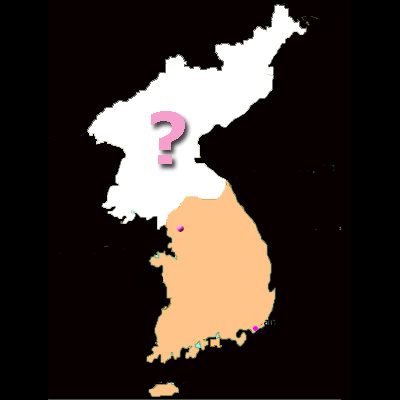For the second time in a few days, something has popped up in comments that deserves some attention on the main page. Charles (the regular commenter) had a strong reaction to my posts on North Korean literature, and so, I have brought it up to the main page. As usual, my responses are italicized. While I disagree with Charles, I think it is only fair to post his comment, as it represents a well-researched opinion.
Your critique of DPRK literature is too harsh.
Sure, in a rigidly totalitarian state, much of it is unreadable love stories in which a young man falls in love with a tractor and the teachings of the Eternal President.
But, not all of it is.
Here is a piece in English translation that is readable:
http://wordswithoutborders.org/article/second-encounter
This is quite readable, but it suffers from the same didactic flaw that I find in most North Korean literature – it is a one-sided affair attempting to put a nice face on North Korea. This, of course, happens in South Korean literature as well, but you can also find literature in which the author is explicitly exploring, often attacking, the status quo. In this work the westerner is “cunning” the Korean friend “simple minded” (in an honest peasanty way) and it is the narrator’s sad job to try to make sure the bigoted westerner does not misinterpret the triumph of Juche. This reminds me of early women’s fiction in Korea, in which the model of the “modern woman” was set up against straw opponents, who the author always undercut in writing, and whom the heroine always neatly despatched.
Passages like the following just send me away hooting:
Our socialist fatherland is under siege from global imperialism. In the midst of all this, our nation suffered an enormous trauma, as the Great Leader, the founder of socialist Korea, left our side. And from that point for several years in a row we have suffered destructive natural disasters, as though nature itself had formed an alliance with the imperialists and their policy to isolate and choke us with a blockade.
He [The author] was eventually taken to Pyongyang to be trained and to become a writer in the employ of the state (as all professional writers are).
And what about the novel Hwangjini, by Hong Seok-jung referred to in this interview:
http://wordswithoutborders.org/article/an-interview-with-hayun-jung/ ??
See: http://en.wikipedia.org/wiki/Hong_Sok-jung
This work won in 2004 an ROK literary prize:
That’s actually much more interesting to me, particularly since it won the Manhae prize and was apparently turned into a massively successful drama (a lot of historical Korean literature has received this treatment, e.g. Hong Gildong). Still, as one of your links notes, this is a ‘safe’ topic for a state-sponsored author, as it is historical love-story.
And this:
http://koreana.kf.or.kr/pdf_file/1990/1990_SPRING_E068.pdf
references some works as well.
I’ll see what of that can be tracked down.
Additionally, what about graphic novels in the DPRK, like this one:
http://wordswithoutborders.org/graphic-lit/blizzard-in-the-jungle/
That also looks interesting, but shares the common flaw of being a primarily ideological (and again, I’ll say state-sponsored) work:
The two heroes of Blizzard in the Jungle are North Korean doctors whose surnames are both Kim, making them stand-ins for Kim Il-sung (the Great Leader) and his son, Kim Jong-il (the Dear Leader). They are cast as the rescuers of a multiracial group that elects one of the Kims as their leader for his virtuous qualities. He directs them in what appears to be a doomed endeavor, going contrary to the apparent common sense of thee Americans in the group. (In the end, this strategy—symbolic of ascending Norrth (sic) Korea’s Mt. Paekdu, the mythic birthplace of their leader—turns out to be the better plan, and the selfish Americans meet an appropriately gruesome fate.)
I would also suggest that the DPRK leading literary magazine Choson Munhak [http://www.eastview.com/peri/product.asp?sku=P14409&active_tab=1] I am sure has some good stuff, even if much of it is propagandistic drivel.
That I would love to see… my understanding is that it is difficult to access while in Korea.
Also, looking at the Wikipedia page on North Korean literature, I have to shudder at descriptions such as:
Kang Kwi-mi’s short story “A Tale of Music”, published in Choson Munhak in February 2003, tells the tale of a young Zainichi Korean who discovers he is skilled at playing the trombone, moves to North Korea, and relinquishes music in favour of stonemasonry. His passion for the “music” of stones is caused by the greatness of Kim Jong-il as expressed through stone monuments.
Finally, I read some DPRK works in Russian translation, and they were not all bad.
I would note that some works like military action novels, certain mysteries, science fiction are need not necessarily be that different the world round.
Yes, of course the DPRK can ruin any work through the insertion of endless turgid prose, but not every work is like that.
For a list of some works in Russian translation:
(I have elided this, which you can see in the comments on the original post. Russian translation of Korean lit isn’t my thing – partly because I can’t read Russian^^ – so I don’t discuss it here)
Anyway.. interesting discussion, and different people obviously find different value in national literatures. My basic feeling, and I haven’t seen any North Korean fiction to contradict it, is that state-sponsored literature is likely to be bad, even if the authors fully believe in what they are writing, because the process of getting into such a state-sponsored position is going to naturally limit styles, narrative structure, plot choices, pretty much the whole shebang.
YMMV, of course, and I appreciate the considered response.



